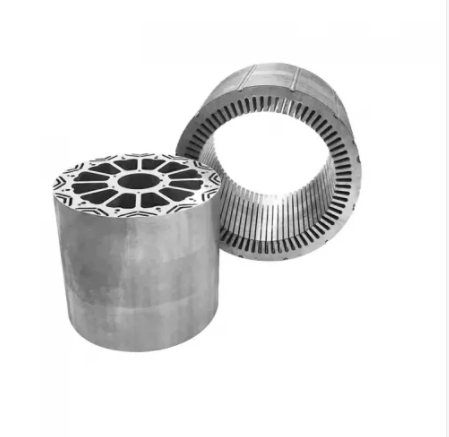Function of Stator and Rotor
Unveiling the Vital Functions of Stator and Rotor in Motor Core Manufacturing
In the intricate world of motor core manufacturing, CHME Components Co., Ltd. stands as a distinguished enterprise specializing in high-speed stamping and insulation coating. With a robust presence in the automobile supporting industry since 2012, the company has achieved ISO9001 and IATF16949 certifications, reflecting its commitment to quality and reliability. One of CHME's key strengths lies in its ability to produce stamped parts of various sizes, ranging from 25 tons to 300 tons, with complete molds and a reputation for rapid response and thoughtful service.
The Heart of the Motor Core
At the core of CHME's expertise lies an in-depth understanding of the functions of stators and rotors, essential components in the realm of electric motor manufacturing. These elements play a pivotal role in transforming electrical energy into mechanical energy, powering a vast array of applications from electric vehicles to industrial machinery.
The Stator: A Static Powerhouse
The stator serves as the stationary component of an electric motor. Its primary function is to generate a magnetic field when an electric current flows through the coils wound around its core. This magnetic field remains static, creating a foundation for the rotational motion of the motor. The stator's role in initiating the electromagnetic interaction is crucial, as it sets the stage for the dynamic performance of the entire motor system.
Key Features and Considerations
Customization: CHME Components excels in crafting customized stators based on client-provided drawings and dimensions, ensuring precise compatibility with specific motor designs.
Quality Assurance: With ISO9001 and IATF16949 certifications, CHME guarantees the reliability and quality of its stator products, meeting the rigorous standards of the automotive industry.
Cost-Effective Solutions: CHME's commitment to affordability extends to the production of stators, providing custom solutions that not only meet but exceed customer expectations while optimizing cost-efficiency.
The Rotor: Unleashing Rotational Power Complementing the stator, the rotor is the rotating component within the electric motor. As the stator's magnetic field interacts with the rotor, it induces a torque that propels the rotor into motion. This rotational force is then transferred to the motor's output shaft, driving the mechanical system connected to it.
CHME's Expertise in Rotor Manufacturing
Responsive Manufacturing: Leveraging presses ranging from 25 tons to 300 tons, CHME swiftly produces rotors of varying sizes to accommodate diverse motor specifications.
Custom Designs: Clients can entrust CHME with their unique rotor requirements, confident in the company's ability to translate concepts into high-quality, tailor-made solutions.
Cost Efficiency: CHME's in-house production capabilities allow for cost-effective rotor manufacturing, contributing to overall savings for clients without compromising on performance.
Conclusion
In the realm of high-speed stamping and insulation coating for motor cores, CHME Components Co., Ltd. stands as an industry leader, driven by a mission to tackle the toughest challenges in engineering and processing. Through a comprehensive understanding of the functions of stators and rotors, CHME delivers customized, reliable, and cost-effective solutions that empower industries worldwide.
Details are usually available on our website and our after-sales team will provide you with quality consulting services. Except this, we provide best OEM service. Thank you for your interest. For more information, please contact us.
349
0
0
All Comments (0)
If you are interested in sending in a Guest Blogger Submission,welcome to write for us!



Comments